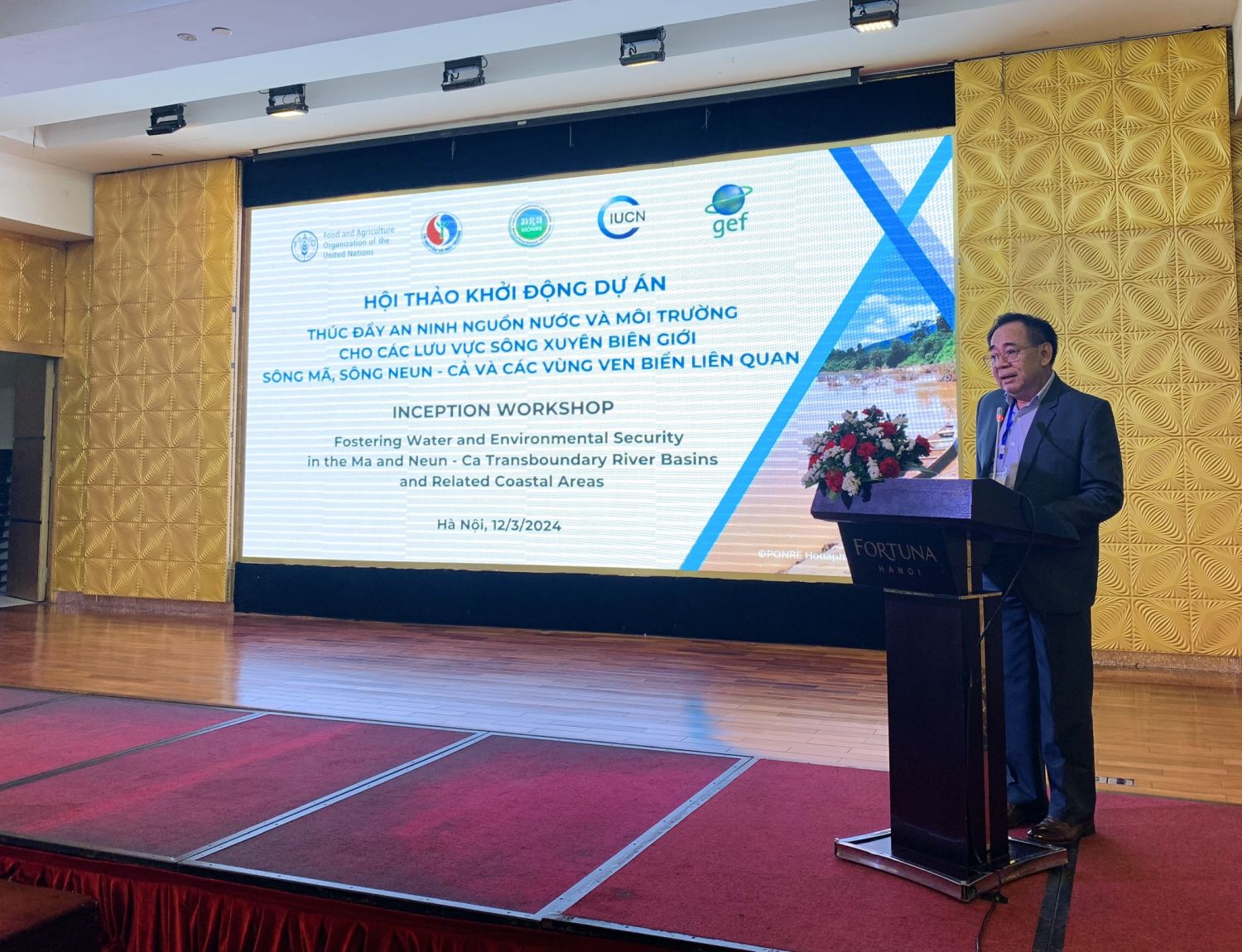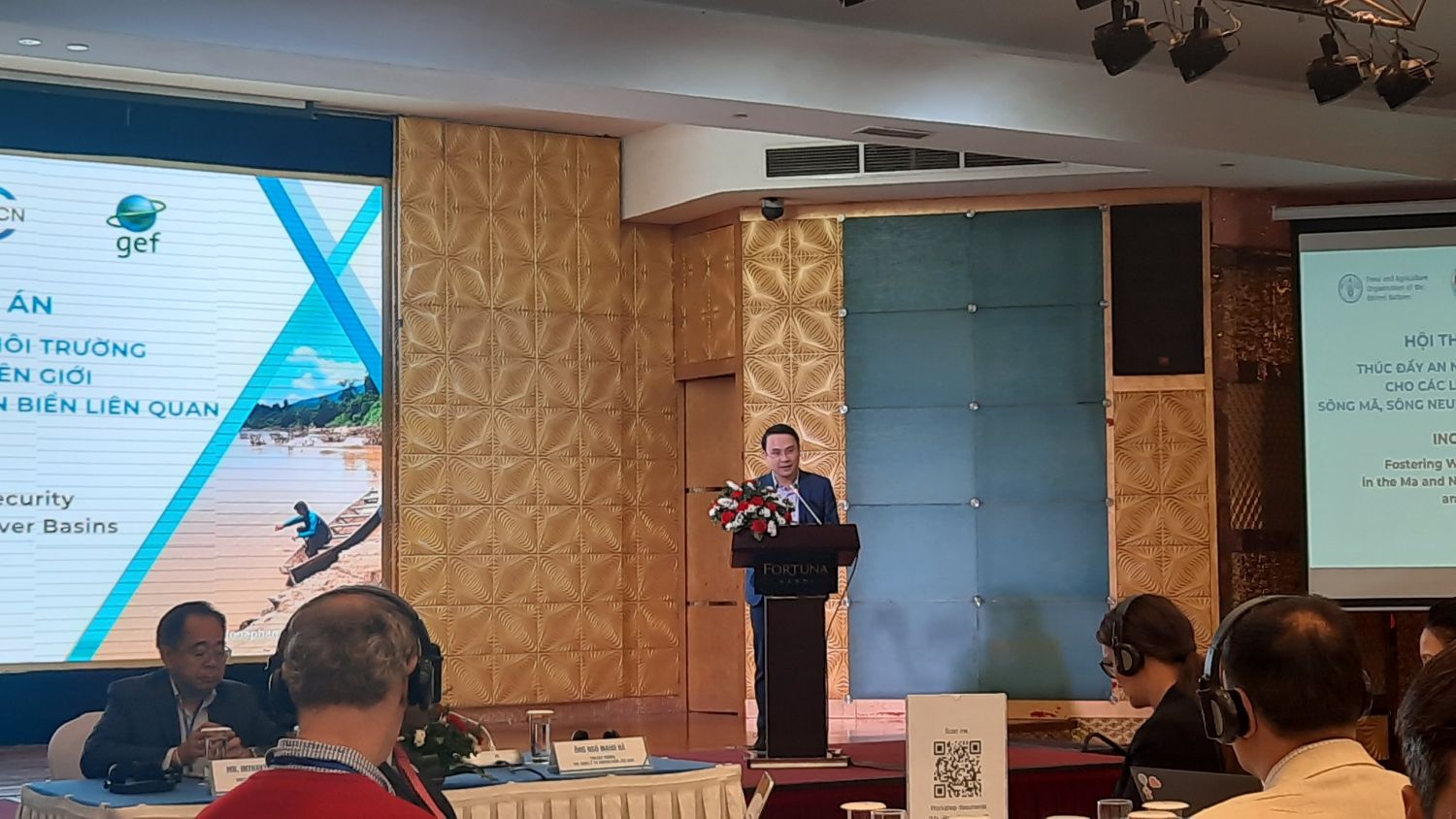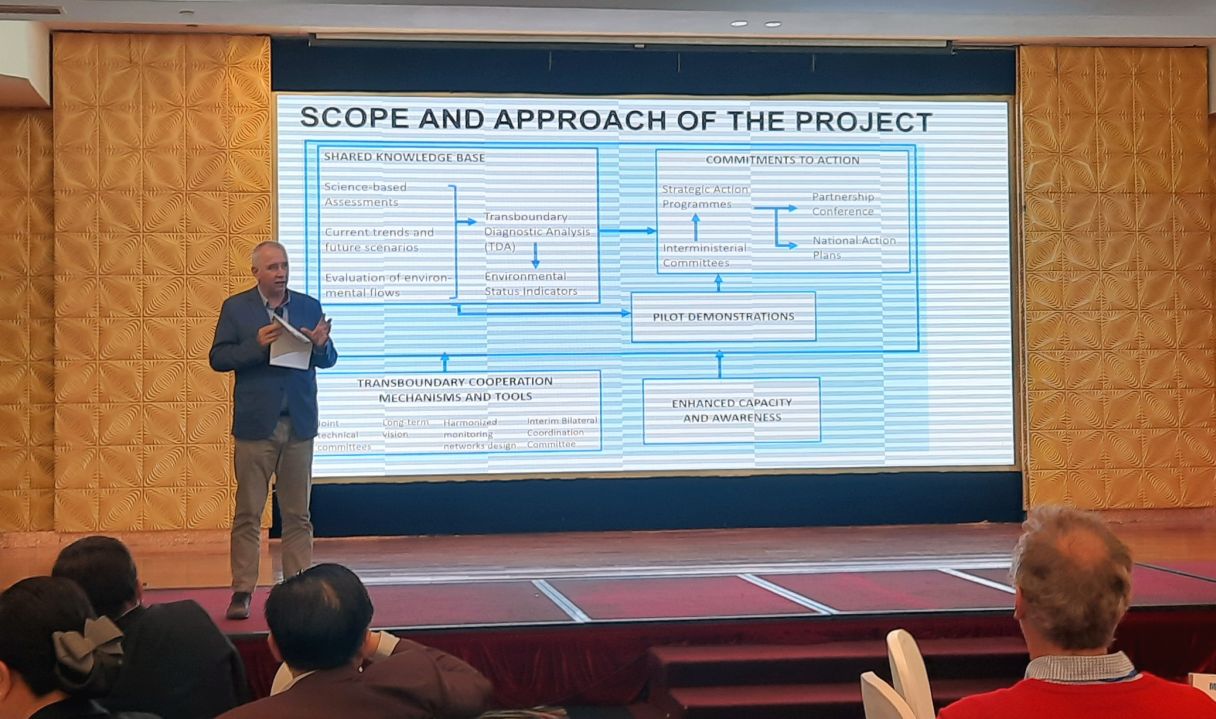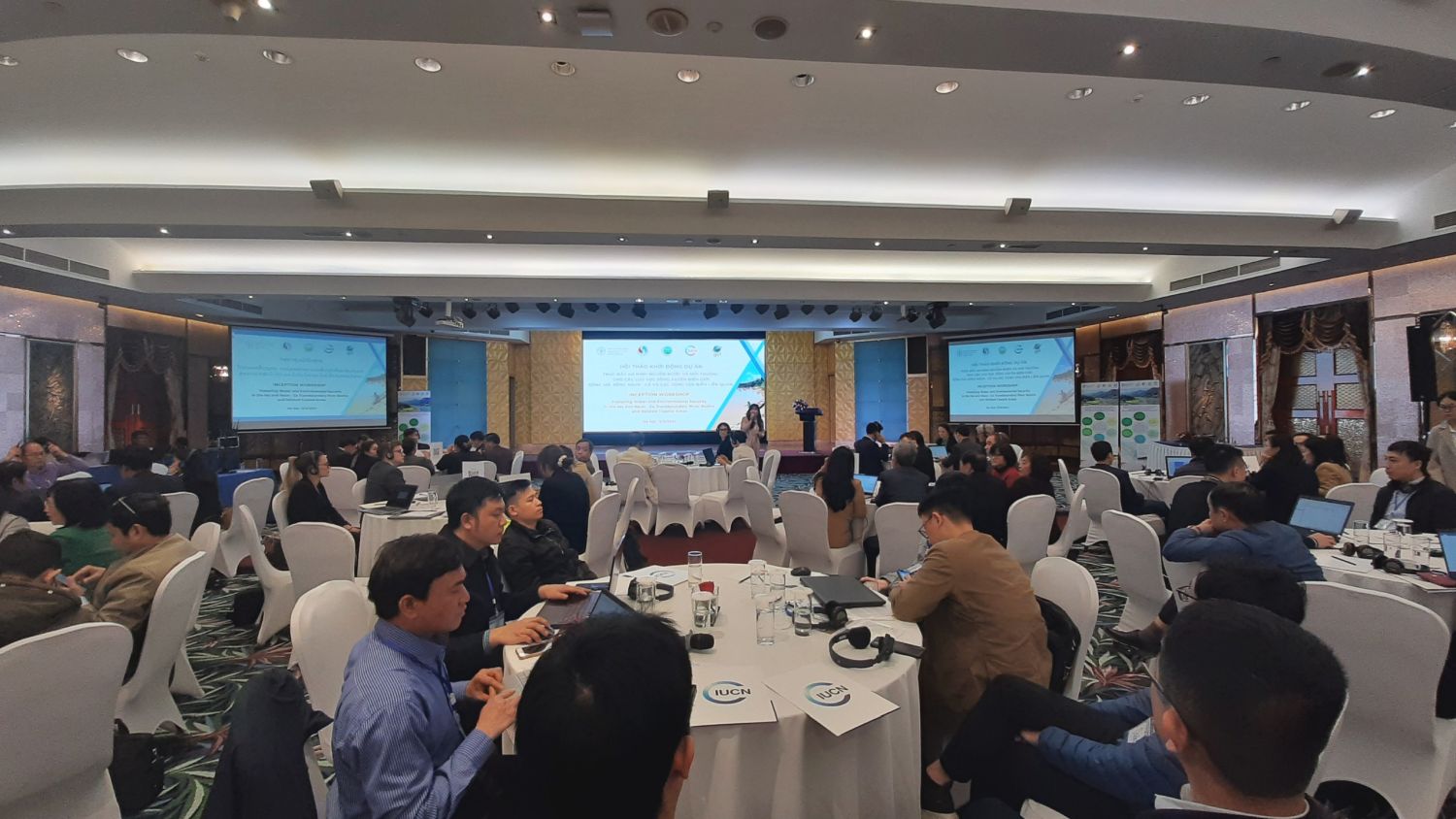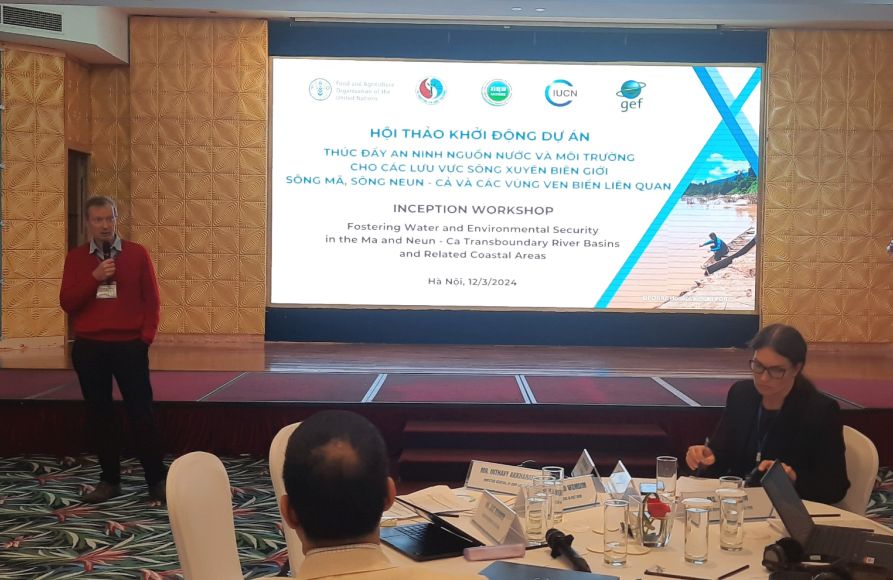Launching a bilateral collaboration project between the Lao People’s Democratic Republic and Viet Nam on strengthening integrated water resources management and ecosystems health in the Neun-Ca and Ma river basins.
Ha Noi, 12 March 2024 – The Department of Water Resources Management (DWRM) of Ministry of Natural Resources and Environment (MONRE) Viet Nam in collaboration with the Food and Agriculture Organization (FAO), the Department of Water Resources (DWR), Ministry of Natural Resources and Environment (MONRE) in Lao PDR, and IUCN, the International Union for Conservation of Nature, organize a workshop to launch the project “Fostering Water and Environmental Security in the Ma and Neun-Ca Transboundary River Basins and Related Coastal Areas, Viet Nam and Lao PDR”.
The workshop introduces the project and capture feedback on the project design and implementation plan. It will bring together central and provincial government officials from Viet Nam and Lao PDR, local and international NGOs, universities, research institutes and other stakeholders.
This 5-year project has a budget of $8 million from the Global Environment Fund (GEF) of which about $3 million will be channeled to support pilot project implementation in the Neun-Ca and Ma river basins. IUCN is the Lead Operational Partner responsible for project coordination and technical oversight.
The project goal is to enable Viet Nam and Lao PDR to address freshwater resource management and ecosystem health in the transboundary Ma and the Neun-Ca river basins and coastal zones by creating an enabling environment for transboundary cooperation and action.
“The project's efforts to enhance water and environmental security in the Ma and Neun-Ca river basins align closely with FAO's 2022-2031 Strategic Framework, advancing the 'four betters' - better production, better nutrition, better environment, and better life. By creating the enabling conditions for transboundary cooperation and action on shared water resources, the project contributes to healthier ecosystems, which are foundational to sustainable agrifood systems, improved livelihoods, and a better future for communities in Viet Nam and Lao PDR.”, said Mr, Rémi Nono Womdim, FAO Representative in Viet Nam.
The Ma and Neun-Ca are two adjacent transboundary rivers with similar-sized basins with similar characteristics and water and environmental management challenges. Key challenges include water use and climate change causing significant changes to flows in both basins; deforestation and changes to forest cover impacting flows and sediment loads; agricultural expansion; increasing water withdrawals associated with demographic growth and rapid economic development affecting environmental flows; extreme water events contributing to flooding
Mr. Ngo Manh Ha, Deputy General Director of DWRM, MONRE and Dr. Inthavy Akkharath – Director General of DWR, MONRE Lao PDR shared the same view: “The project is consistent with national priorities and the ambitions of the new law on water resources management. The government of both countries strongly support this project and will work closely with IUCN, FAO and other partners in Viet Nam and Lao PDR to address climate change impacts and improve natural resources management in both river basins”.
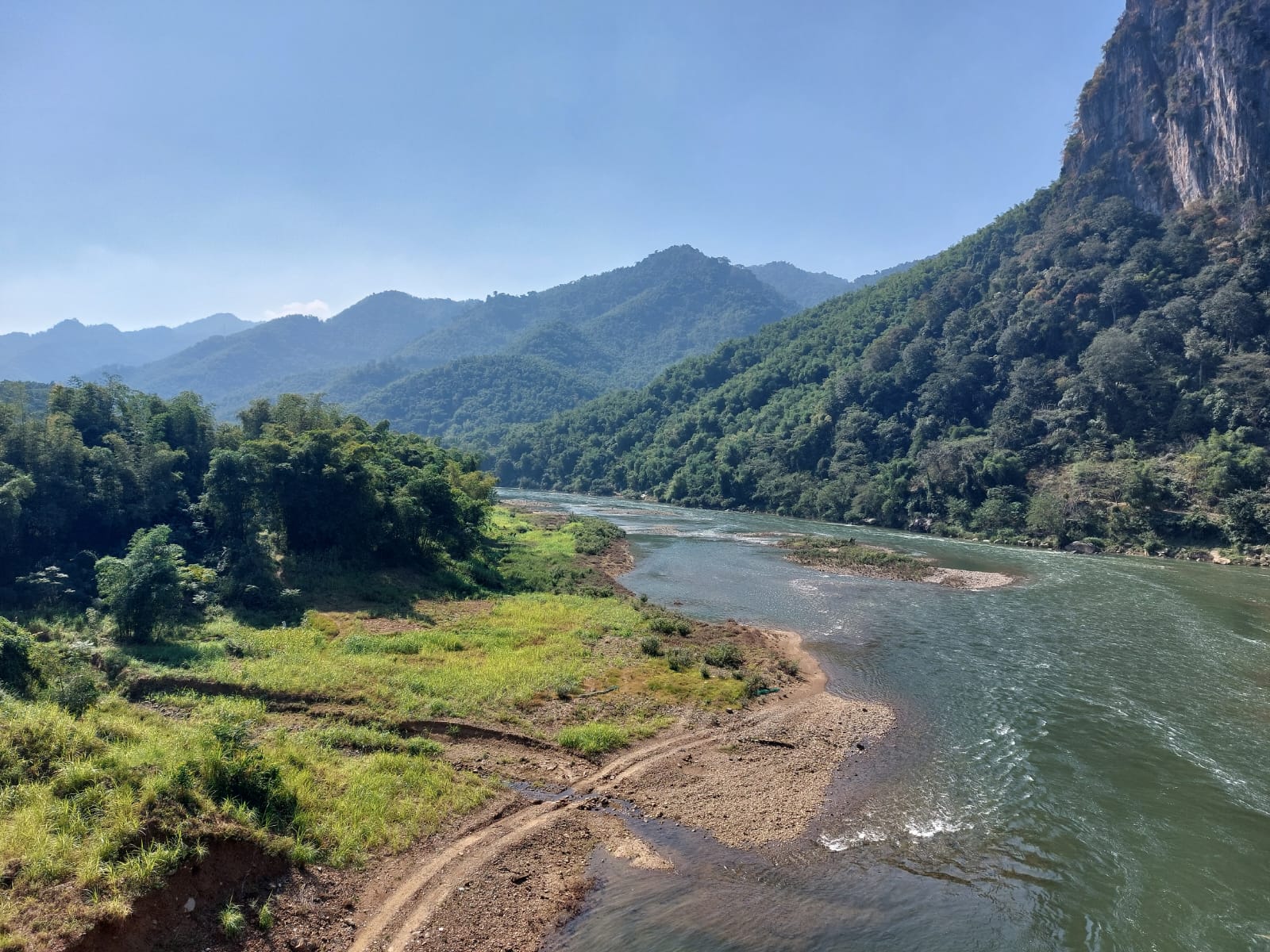 Photo: Ma river landscape © IUCN Viet Nam/Rien Dam
Photo: Ma river landscape © IUCN Viet Nam/Rien Dam
The project will be implemented with five expected outcomes including 1) getting consensus among countries on key transboundary concerns; 2) enhancing water security, environmental sustainability and forecasting capabilities in both basins and their coastal areas; 3) reinforcing join actions; 4) reversing land degradation trends in the two basins; and 5) enhancing the capacities of relevant national entities, and sharing project experiences and lesson learnt.
Jake Brunner, Head of IUCN Lower Mekong Sub-region and IUCN Viet Nam Country Representative emphasised that: “As the lead executing agency, IUCN will collaborate with a wide range of partners on project implementation. This includes setting up a transboundary coordination mechanism to collaboratively manage surface and groundwater. This will maximize the economic value of the basins’ water resources and reduce risks to floods, droughts, and saline intrusion”.
Participating the launch workshop, representatives from across sectors will contribute ideas, provide inputs and comments for project implementation and future plan to promote transboundary cooperation, build sound river basin management frameworks, strengthen water and environmental security and gender equality.
